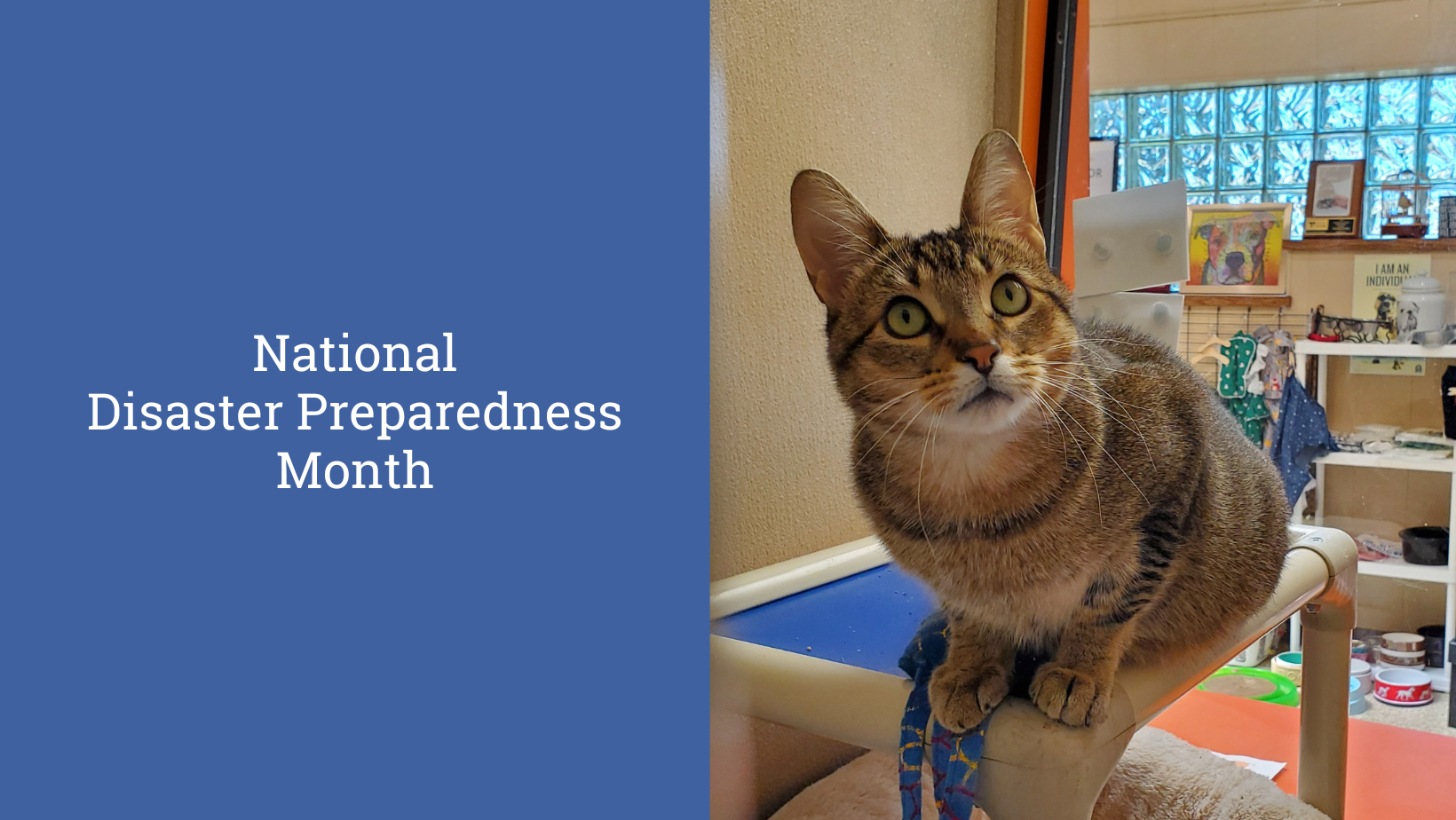September is National Disaster Preparedness Month, and we want to keep your family members—both two-legged and four-legged—safe! While most disaster preparedness plans focus on protecting your human family, we want to focus on protecting the furry, feathery, and scaly friends in your life.
What is a Disaster Preparedness Plan?
Disasters are (unfortunately) unpredictable and can strike at any time, which is why creating a plan is critical. Emergencies are anxiety-inducing and having a plan might help you focus and quickly respond to the situation. If you are unsure where to begin, Red Cross has compiled a helpful resource page.
A standard plan should address any weather or environmental hazards typical in your geographic area.
What Information Should I Include for my Pets?
Identify Safe, Pet-Friendly Locations
If your home is unsafe for you in an emergency, chances are high that it is not safe for your pets! Compile a list of addresses and phone numbers for pet-friendly locations. Unfortunately, not all hotels and shelters allow pets; preparing this list ahead of time will let you focus your full attention on evacuating.
Medical Records
Keep a copy of your pet’s vaccination records. Quite a few shelters require these records before they will accept your pet.
Does your pet have a pre-existing medical condition? Include a medication list and note any symptoms.
Medical records also help you prove ownership of your pet.
Up To Date ID Tags and Microchips
Maintaining up-to-date ID tags and microchipping your pets is good practice in general, but it can be crucial if you are separated during an emergency. Also, you should always update your pet’s tags if you change phone numbers or move. If someone finds your lost pet, they need your information to contact you!
We know the heartbreak associated with the wandering of your pet from home. Our page here walks you through what happens if someone brings a lost pet to our shelter.
What Do I Put in an Emergency Kit?
- Extra leashes and collar with ID tags
- Pet carrier
- First aid kit
- Copies of your pet’s registration information
- Food and water
- Any medications your pet takes
- Contact information for your pet’s vet
We hope this information helps you protect your pets during emergencies!

